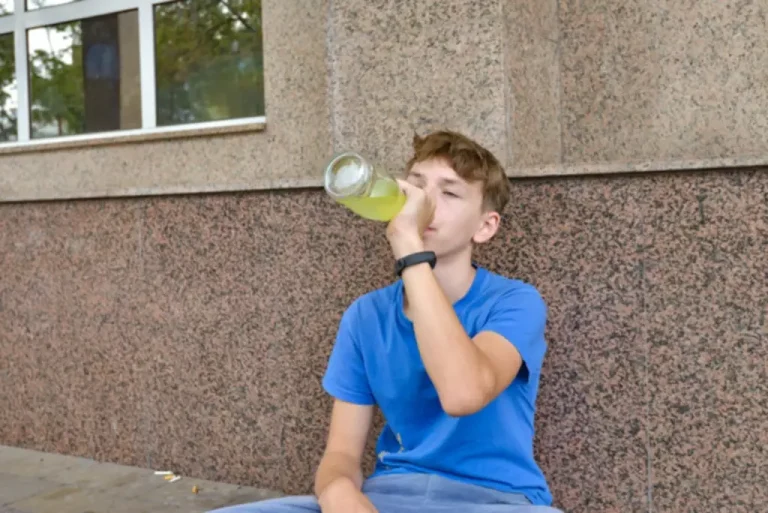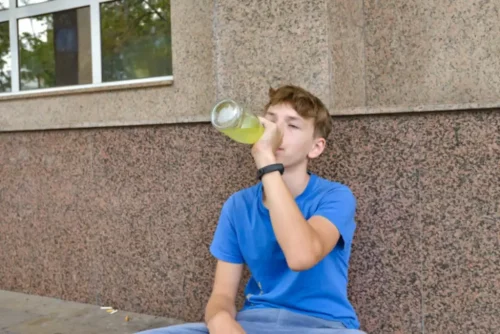
If you not only drink, but also smoke excessively, you may also suffer from a painless but permanent loss of vision known as optic neuropathy. This condition significantly decreases your peripheral vision, and can cause you to lose your color vision as well. Drinking alcohol regularly can also cause dry eye symptoms and involuntary twitching of the eyelid, known as myokymia. You may also experience inflammation of the eye and double vision that causes burning and itching of the eyes, migraines, and extreme light sensitivity. Alcohol disrupts how the brain interprets visual cues, leading to blurred vision. It temporarily weakens the eye muscle coordination, making it difficult for the eyes to focus.
- When a person’s blood alcohol content (BAC) begins to rise, they begin experiencing the effects of intoxication.
- But as you drink more — and you don’t need to drink that much more — eventually, the enzymes that break down the alcohol get saturated.
- The optic atrophy may include irreversible blind spots (visual field loss) and poor color perception.
- Excessive alcohol consumption often leads to overall fatigue and tiredness, including eye fatigue.
- This condition significantly diminishes visual clarity and can progress to blindness if untreated.
- This combination of professional detox and customized therapy offers a solid foundation for recovery and long-term success in overcoming alcohol addiction.
- You can still enjoy a drink in several ways while maintaining good overall health, including healthy eyes.
How Alcohol Can Impact Your Tears

There are many reasons to stop drinking, and damage to vision—whether short- or long-term—is one of them. Among its short-term effects are blurred vision and double vision, which can be temporary effects of intoxication, although they typically wear off as the person sobers up or the next day. Alcohol abuse can also contribute to long-term changes to vision such as an increased risk of developing cataracts. Other effects of drinking alcohol regularly can result in dry eyes and eyelid twitching, known as myokymia.
- Not only can drinking contribute to DED, but it may also make existing DED symptoms worse.
- A good layer of tears on the surface of the eye plays a vital role in clear vision.
- If you drink excessively, be sure to see a healthcare professional so you can get help cutting down before the effects on your health get worse.
- Excessive alcohol consumption, including binge drinking, can have more serious consequences over time, with long-term effects on your eyes.
- The contents of this post and of all Zenni blogs are for informational and marketing purposes only.
Health Challenges
The American Optometrists Association recommends that most adults receive a comprehensive eye exam every one to two years. Alcohol is often a central part of social gatherings and celebrations, but its effects extend beyond a mere hangover. However, dehydration from excessive consumption might exacerbate the perception of floater and make the vitreous more noticeable.
Dry Eyes, Bloodshot Eyes, and Alcohol Abuse
While alcohol is a relaxant and can make you feel good at first, chronic alcohol use can cause mental health issues. Contact our team at Total Vision Rancho Bernardo today to book your next eye exam. We can examine your eyes and answer any questions concerning your long-term eye health. Perhaps one of the more sobering aspects of alcohol’s impact on vision is the potential for long-term, progressive damage that can be irreversible. If you suspect you may have a problem with alcohol abuse, don’t wait — get help.
Additionally, alcohol’s diuretic properties can disrupt the balance of electrolytes in the body, affecting tear composition and further exacerbating dry eye symptoms. Consuming alcohol may increase dehydration, promote inflammation, and disrupt vitamin transport — all factors that can negatively affect tear quality and quantity. Age-Related Macular Degeneration (AMD), is a progressive eye condition.
- This condition severely affects central vision, crucial for reading, driving, and facial recognition.
- Possible short-term problems relating to intoxication include blurry vision, changes in color perception, and light sensitivity.
- If you find yourself squinting or closing your eyes frequently due to discomfort, it’s a sign that alcohol is affecting your ocular health.
- Drinking can cause short- and long-term challenges with eye health and vision, including a condition known as dry eye disease (DED).
Treatments for eye-related issues with alcohol

Reducing alcohol consumption is key to preventing this irritation and maintaining clear, healthy eyes. The eyes work harder to compensate for their reduced efficiency, leading to strain. If you find yourself squinting or closing your eyes frequently due to discomfort, it’s a sign that alcohol is affecting your ocular health. Managing your alcohol intake can help alleviate these symptoms and protect your eyes from further strain. A person may reduce their risk of developing vision issues due to alcohol by limiting their alcohol consumption.
What effects does alcohol have on mental health?

Instead, eye floaters are usually a common and harmless condition resulting from changes in the vitreous, a gel-like substance that fills the back of the eye. We think of our patients as family and have been leaders in eye care since 1981. Our modern advanced technology and friendly and supportive staff have led to our being one of the premier eye care and centers for blurry vision hangover surgery on the western coast of Florida. At Florida Eye Specialists and Cataract Institute, we are proud to deliver personal service that has ensured the satisfaction of our patients.

How Alcohol Affects Your Eyes
It can cut down on your peripheral vision as well, resulting in tunnel vision. The contents of this post and of all Zenni blogs are for informational and marketing purposes only. This post and all Zenni blog contents are not to be considered medical advice.
